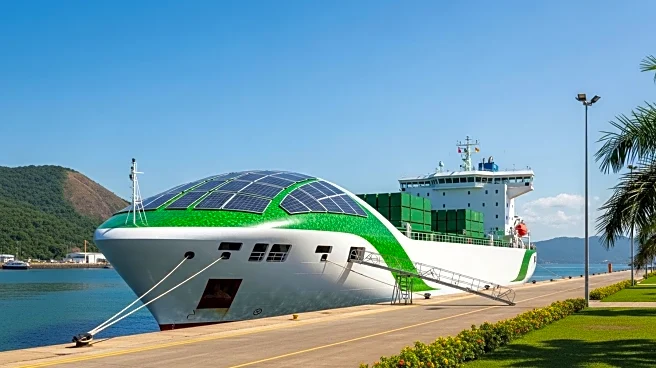What is the story about?
What's Happening?
Five Brazilian ports are leading efforts to decarbonize maritime transport as part of a study conducted under Brazilian-German cooperation. The ports, including Itaqui, Pecém, Paranaguá, Santos, and Açu, are implementing initiatives such as solar panel installations and transitioning to electric equipment. These efforts aim to reduce greenhouse gas emissions and align with international climate targets.
Why It's Important?
The decarbonization of Brazilian ports is crucial for maintaining competitiveness in global trade and meeting international climate goals. By adopting sustainable practices, the ports are setting an example for others to follow, potentially influencing global shipping standards. These initiatives also contribute to improving air quality for coastal communities, highlighting the environmental and social benefits of decarbonization.
What's Next?
The ports are in the process of developing comprehensive decarbonization plans, with some already completed. Continued collaboration between Brazilian and German agencies may lead to further advancements in sustainable maritime practices. The creation of a National Green Hydrogen Plan and tax incentives could accelerate the adoption of clean fuels, supporting the ports' transition to greener operations.
Beyond the Headlines
The study emphasizes the importance of international cooperation in addressing climate challenges. By working together, countries can share knowledge and resources to implement effective solutions. The focus on decarbonization also highlights the role of infrastructure in achieving sustainability goals, underscoring the need for investment in green technologies.
















